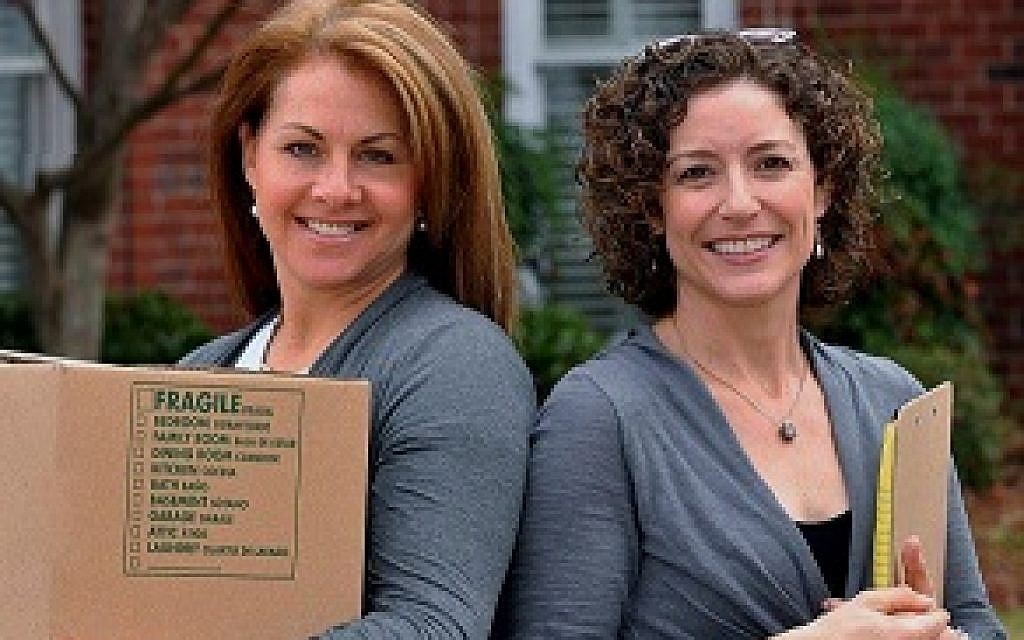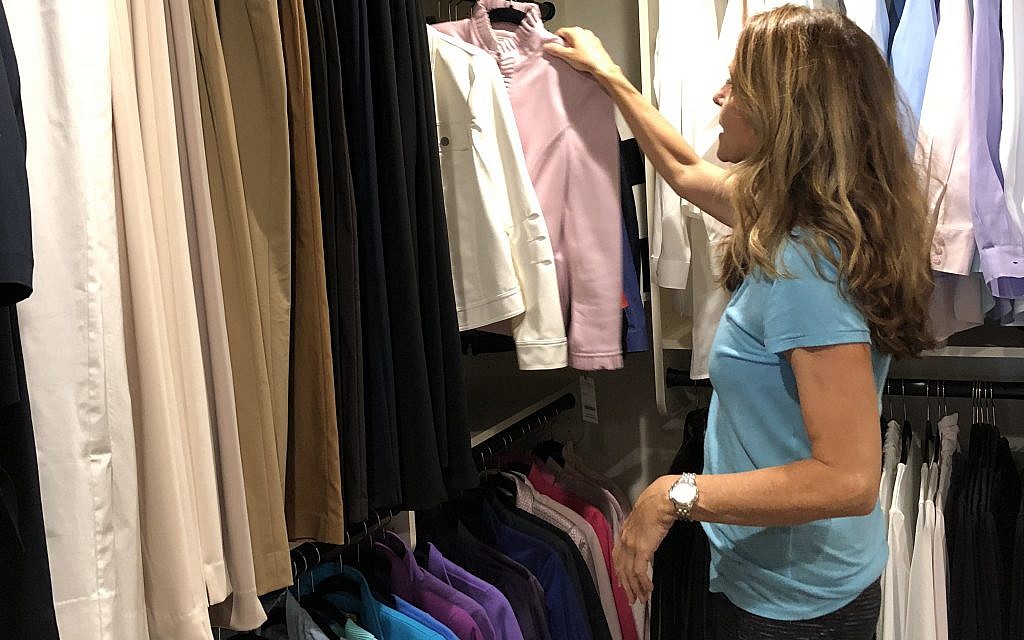ChangingSpaces Eases Strain of Senior Moving
Any move is a mammoth undertaking, but for seniors, a move can also mean dealing with increased stress and emotion. That’s where ChangingSpaces comes in.

Any move is a mammoth undertaking, but for seniors, a move can also mean dealing with increased stress and emotion. That’s where ChangingSpaces comes in.
Linda Kaplan and Holly Mitchell are two Jewish Atlantans who, after meeting while working in advertising, found themselves placed in similar situations.
“I had to plan a move for my mom. My dad had passed away and we were looking at senior communities,” Kaplan said. “My husband travels and so I was going back and forth to Nashville, [where she lived], and it was very stressful. I felt like there had to be people who do this.”
The new entrepreneurs had both taken time off work as mothers and were ready to look for a venture together, when it hit Kaplan, “I said, ‘this is absolutely a business!’”
Mitchell was on board, and ChangingSpaces got its start in 2011 with a client very close to home for her as well.
“One of our first clients, when we finally decided to go for it, was my parents, who had to move from Delray, Fla., to Atlanta,” she said. “They were our guinea pigs and we knew that we could do a good job when we finished that.”

The two women reached out to the National Association of Senior Move Managers, which at that time was still relatively new and consisted of only around 550 members.
“It really has grown,” Mitchell said. “What it does is establish expectations, rules, procedures and ethics and provide training, all the things that you’d want in a company that’s helping seniors.”
NASMM has also provided the duo with a network of similar services in different cities across the United States and beyond.
“If people are moving from California to Atlanta or any other city where there are move managers, we can easily connect with those people and make the transition seamless,” Mitchell said.
There’s an important distinction between movers and move managers, and it begins first and foremost in a discussion of what services they provide for their clients.
“Every job is different for us and we really can do as much or as little as people want us to, but we can handle anything and everything around a move,” Kaplan said. “Our first step is always to go in and see the space and see what kind of help they need.”
If their client knows where they’re moving, the pair will create a detailed floor plan that allows them and their client to better understand how much space they have and how much they can take with them.
“From there, we start sorting through everything with them, room by room,” Kaplan said. “As we get to know them, we start to gently push and offer some advice. We’ve done this so many times and we have a good feel for how to maximize space.”
Possessions can be a challenge for their senior clients, as they are often closely tied to memories, and letting go of those items can be a frightening prospect.

“We have to work creatively with them, and for some that means scanning things and putting them on a disk, or for others, it’s a photo album,” Mitchell said.
The second challenge is what to do with what’s not making the move with them, and Mitchell explained, this gets increasingly difficult as a greater portion of the population ages.
“We help connect them with consignment shops and estate sale professionals, but as there’s more and more to be sold, it’s a challenge to help them understand that what they paid for it 40 years ago is not what it’s going to bring today,” Mitchell said.
Kaplan said that often the plan was to pass these things down to their children. “This next generation — ours and our kids — don’t want all this. They’re more minimalist and streamlined. The brown furniture and the china and silver just isn’t the lifestyle of today, but just because it doesn’t bring what you think it should, does not mean it hasn’t served its purpose.”
Creative solutions are important, and Kaplan shared her own experience, “I had a set of my grandmother’s china and it made me smile because I thought of her, but I didn’t really love it. What I did is I kept a cup and saucer in my office. I don’t need the whole set to remember her.”
There’s no doubt that emotions are tied to spaces as well as objects, and, as such, moving can be a painful process, particularly for those who have lost someone in their previous home.
“I went to see a woman recently and her husband had just passed away,” Kaplan said. “Not that you ever really get over that but going through her house and planning her move brings a kind of closure that we’re very sensitive to.”
Memory issues can also be a big challenge for the senior population, and ChangingSpaces is well-versed in working with those who need extra assistance with adjusting to a new home.
“We try to make the new place as much the same as possible,” Kaplan said. “We call it moving the queues and we’re very careful to be specific. What’s in the nightstand? We try to put the same stuff back there.”
At the core of their business is relationships with clients and knowing that they’re helping provide a service that can be a lot of physical and emotional labor for seniors. The pair often have helped members of Jewish Atlanta as they relocate to Berman Commons assisted living and similar facilities in town.
“We are a tight family and we really do love the feeling of helping people,” Kaplan said. “We get very close to our clients and hear all their stories.”
With close to 400 moves under their belts, that’s a lot of stories to keep track of.
Find ChangingSpaces online at changingspacesatlanta.com.



comments